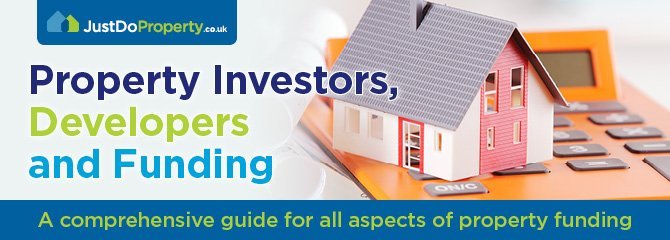In order to appreciate the upward pressure on mortgage rates, it is crucial to understand the economic backdrop. Over the last 15 years, we have seen substantial economic tremors in the UK, the 2008 US mortgage crisis, Brexit, Covid and now out-of-control inflation.
So, while we have become used to historically low interest rates, it would appear this era is coming to an end. Consequently, many property investors and buy to let landlords are reviewing their finances.
With interest rates increasing, the average mortgage rate will increase by 1%.
Why are mortgage rates expected to increase?
There is a direct correlation between the base rate and mortgage rates, as we have seen over the last 15 years. Consequently, when base rates increase, this places upward pressure on mortgage rates. While mortgage lenders are not obliged to pass on base rate rises to their customers, when lending becomes more expensive for the mortgage companies, it is inevitable in the end. So why are base rates set to rise?
Even before the recent boost in inflation, there were concerns that the UK economy was beginning to overheat, with a particular focus on wage inflation. Cheap finance prompted a boom in consumer spending, and, coupled with supply issues, demand was outstripping supply in the aftermath of Covid.
In February 2022, the Bank of England MPC increased UK base rates by 0.25% up to 0.5%, continuing the recent trend.
The January inflation figure, measured by the Consumer Price Index (CPI), was 5.5%, an increase on the December figure of 5.4%.
As we await the February inflation figure, current expectations suggest the rate will hit circa 6% before peaking at 7.25% in April.
This was all before the Ukraine/Russian conflict, which has had a considerable impact on energy prices. Consequently, revised forecasts suggest the rate could peak at more than 8% before falling towards the end of the year.
While recent focus has been on energy prices, i.e. oil and gas, there is a need to reduce consumer spending to rebalance the supply/demand ratio. Consequently, UK base rates are expected to increase further in 2022, possibly to around 1.5%. This would be a tripling of the current rate and is likely to impact mortgage rates significantly.
How much does a mortgage cost for every £1000?
Even though the buy to let mortgage market is still relatively competitive, the recent uptrend in base rates is impacting mortgage rates. If we look at Barclays as an example, the current variable rate for a buy to let mortgage is 4.99%, but there are still several short-term fixed-rate offers available such as:-
| Fixed-rate | Product fee | APRC | Follow on rate | LTV |
| 1.86% two years, Remortgage only | £1795 | 4.6% | 4.99% (variable) | 60% |
| 2.15% two years | £2495 | 4.6% | 4.99% (variable) | 60% |
| 2.25% five years | £2495 | 4.0% | 4.99% (variable) | 60% |
| 2.35% five years, Remortgage only | £1795 | 4.1% | 4.99% (variable) | 75% |
| 2.60% two years | n/a | 4.7% | 4.99% (variable) | 75% |
The above table will give you an idea of the current market rates and the impact of product fees on the interest rate. The APRC is the annual percentage rate of charge, which assumes that you keep your mortgage for the entire term without changing it. This will take into account the impact of fees on repayments and the impact of lower fixed rates in the early years against a higher variable rate.
According to recent information from the Office for National Statistics, the average UK house price was £271,000 in November 2021. Suppose we assume that a buy to let investor can put down a 25% deposit and secure finance on a 75% LTV ratio; this equates to a mortgage of £203,500. The following table gives you an idea of monthly repayments and total repayments for a 25 year £203,500 repayment mortgage at various rates.
| Mortgage rate | Monthly repayments | Total interest | Total repayments |
| 2% | £862 | £55,263 | £258,763 |
| 3% | £965 | £86,006 | £289,506 |
| 5% | £1189 | £153,392 | £356,892 |
| 7% | £1438 | £227,988 | £431,488 |
| 10% | £1849 | £351,261 | £554,761 |
While we are not suggesting that mortgage rates will increase to 10%, the different rates used in the table give you an idea of monthly repayments, total interest and total repayments. If we split this down further, using the above rates on a 25-year repayment mortgage, every £1000 equates to:-
| Mortgage rate | Monthly repayments | Total interest | Total repayments |
| 2% | £4.24 | £271 | £1271 |
| 3% | £4.74 | £422 | £1422 |
| 5% | £5.85 | £753 | £1753 |
| 7% | £7.07 | £1120 | £2120 |
| 10% | £9.09 | £1726 | £2726 |
As you can see, over the 25 year period, the interest at 10% is more than six times the interest at 2%. Consequently, it is essential to shop around for the best buy to let mortgage rates and, where possible, remortgage at lower rates.
How will additional monthly repayments impact my mortgage?
If you can make additional monthly repayments on your mortgage, this will reduce both the mortgage term and interest paid. In this instance, we will consider a 25-year repayment mortgage of £203,500 with an interest rate of 4%. The following table will give you an idea of the impact of additional monthly repayments:-
| Additional monthly payment | Standard monthly payment | New monthly payment | Potential mortgage reduction | Saving on interest payments |
| £100 | £1074 | £1174 | Three years, four months | £18,070 |
| £200 | £1074 | £1274 | Five years, 11 months | £31,215 |
| £300 | £1074 | £1374 | Seven years, 11 months | £41,242 |
| £400 | £1074 | £1474 | Nine years, six months | £49,160 |
| £500 | £1074 | £1574 | 10 years, 10 months | £55,579 |
As you can see, if you can make regular additional repayments, this can significantly reduce your mortgage term, and total interest paid. But, while many people are naturally drawn to paying off their mortgage as quickly as possible, could these additional repayments be better used elsewhere?
If you have, for example, credit card debts they could conceivably attract an interest rate well into the double digits. Therefore, it may be sensible to pay down the higher interest rate debts using the additional funds. When considering extra mortgage repayments, it is essential to take financial advice to make sure you are taking the most appropriate action for your situation.
You can speak to our expert mortgage broker if you’d like to get some advice. You can also find a Mortgage repayments guide here.
Why shouldn’t you pay off your house early?
As we touched on above, many people are naturally drawn to use additional funds to pay down their mortgage as quickly as possible. While, in some cases, this may be the most sensible approach, it is essential to look at different scenarios.
You have additional debts with higher interest rates
If for argument’s sake, your mortgage rate was 4% and your credit card debt was attracting a 15% interest charge, it would make more sense to use additional funds to reduce your credit card debt. It is essential to look at the broader picture if you are considering extra repayments towards outstanding debts. Paying down higher interest rate debts can significantly reduce your overall interest charge.
No emergency fund
Those in a position to make additional payments to their mortgage, or other debts, may need to consider emergency funding. Once you have made an additional repayment to your mortgage, that money is gone; you cannot reclaim it if required further down the line. So, whatever repayments you think you can afford, you should also have an additional emergency fund for unexpected expenses in the future.
Higher return on investment
Any investment carries a degree of risk, reflected in the potential return. It may be that you can secure a higher return on your additional funds by investing them instead of making extra mortgage repayments. However, as we have seen in recent years, stock markets have been volatile, and this option may not be for everybody.
How will tax changes impact property investors and landlords?
It is safe to say that the regulatory burden has increased for buy to let investors/private landlords in recent years. Unfortunately, an increase in regulations is often followed by an increase in charges, impacting long-term returns. Some of the more recent changes to take into account include:-
Mortgage expense deductions
Historically, buy to let investors were able to offset the cost of their mortgage against rental income from their properties. Before April 2020, this offset was calculated at the individual’s highest income tax rate. After the phasing in of changes, the tax credit received against mortgage expenses is a flat rate of 20%, which is less generous for higher rate taxpayers.
Stamp duty
Since April 2016, buy to let investors pay an additional three percentage points above the standard stamp duty rate when acquiring property. For example, up to £125,000, there is no stamp duty on those acquiring their primary residence. However, a buy to let investor would pay 3% on the first £125,000, equating to an additional charge of £3750. This extra 3% charge will be added to the stamp duty rate for all property tax bands.
LTV ratio
As base rates continue to rise, traditional and buy to let mortgage rates will follow. This will likely see a reduction in the maximum LTV ratio of 75% with a 25% deposit. Before the recent upturn in base rates, it was possible to secure a 90% LTV for a buy to let property. This demonstrates how the LTV ratio tends to reflect the economic outlook at the time.
Numerous regulations will further impact running costs and profits for buy to let/private landlords, which include:-
- Electricity Equipment (Safety) Regulations 1994
- Gas Safety (Installation and Use) Regulations 1998
- Furniture and Furnishings (Fire and Safety) Regulations 1993
For some time now, the property market has been seen as a “cash cow” for governments and an easy way to raise additional funds. However, it is fair to say that recent regulatory changes and other charges have seen some investors withdraw from the marketplace. While there is still potential for lucrative long-term rental income streams and capital appreciation, investors are now more selective.
Will inflation impact the mortgage affordability test?
In the aftermath of the 2008 US mortgage crisis, which led to a worldwide recession, regulators around the world introduced a standard mortgage affordability test. This test applies to domestic and private investors when looking to secure mortgage finance. In simple terms, the test will look at income, expenditure and calculate mortgage affordability at several different interest rates.
At the moment, inflation is out of control, and wage inflation is lagging, reducing consumer spending power in relative terms. This will impact the mortgage affordability test for many property/buy to let investors. Under normal circumstances, landlords would simply increase the rent, but this may not be as easy as it sounds in the current economic climate.
Conclusion
It is advantageous to see the practical impact of a change in mortgage rates on your mortgage repayments. The effect of additional mortgage payments will also surprise many people with the potential to reduce their mortgage term and total interest paid. As we touched on above, there is a natural pull towards paying-off your mortgage as quickly as possible. However, if you have other debts attracting higher interest charges than your mortgage, it may be sensible to divert any additional funds down this path. You should discuss these issues with your financial adviser as it is essential to look at the broader picture.
Sources:-
https://www.natwest.com/mortgages/mortgage-calculators/mortgage-overpayment-tool.html
http://www.n-ram.co.uk/helpful-tools-calculators/rate-rise-calculator
https://tradingeconomics.com/united-kingdom/interest-rate
https://www.ons.gov.uk/economy/inflationandpriceindices/bulletins/housepriceindex/november
https://www.barclays.co.uk/mortgages/buy-to-let/rates/
https://moneytothemasses.com/saving-for-your-future/buy-to-lets/the-buy-to-let-guide
https://www.knightfrank.co.uk/stamp-duty-calculator


